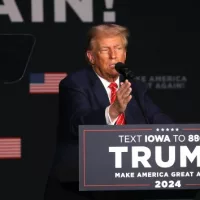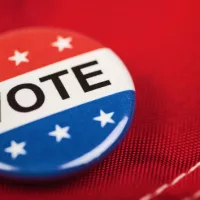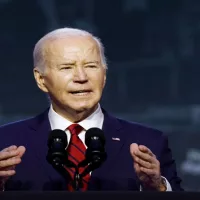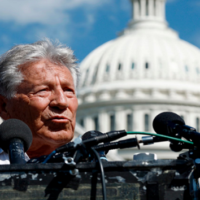
(WASHINGTON) — Former President Donald Trump’s legal battles continue to mount as oral arguments begin on Thursday in Minnesota, where the state’s Supreme Court will decide whether or not the case to prevent him from appearing on the state’s ballot under Section 3 of the 14th Amendment should proceed because of his actions around the Jan. 6 attack on the U.S. Capitol.
This will be the second time this week that a case challenging Trump’s eligibility for office will be heard in a courtroom.
There are two likely avenues the justices could take following oral arguments. The justices could dismiss the lawsuit and allow Trump on the ballots (the petitioners would most likely appeal the decision).
If the justices decide the case against Trump should move forward, they could appoint a special master to oversee oral arguments where evidence can be presented and witnesses are called to testify. The special master would then provide the findings and facts of the case to the justices. From there, the justices would decide if Trump should be allowed on Minnesota’s ballot.
Voters alleged that Trump’s actions and remarks on Jan. 6 disqualify him from holding office under Section 3.
Section 3 of the 14th Amendment states that someone isn’t eligible for future office if, while they were in office, they took an oath to support the Constitution but then “engaged in insurrection or rebellion against the same, or [gave] aid or comfort to the enemies thereof,” unless they are granted amnesty by a two-thirds vote of Congress.
Free Speech For People, a nonprofit organization, represents the state voters hoping to keep Trump off the ballot, including a former state secretary and a former Minnesota Supreme Court justice. The petitioners in the case are suing Minnesota’s Democratic Secretary of State Steve Simon, asking the Supreme Court to have him not allow the former president on the state’s ballot.
FSFP had unsuccessfully challenged the candidacies of several members of Congress in 2022, citing Section 3. In one notable case against Georgia Republican Rep. Marjorie Taylor Greene, the judge found the plaintiffs provided insufficient evidence.
Although Simon is the respondent in the case, he told ABC News in an interview that his office will remain neutral throughout this process and their main concern is assuring that voters in Minnesota know in a timely manner whether or not Trump will be allowed on the ballot.
“They deserve to know as soon as possible what their options are and what they will be for the presidential nominating primary and perhaps beyond that, depending on the performance of this particular candidate,” Simon said. “From a scheduling standpoint, we will be at various points, if necessary, urging the court to act sooner rather than later. But we are not taking a position on the underlying legal issues and to that extent, we are bystanders in a sense to the litigation.”
Trump’s legal team responded to the petitioners’ request to remove Trump from the ballot, writing that the “petitioners have no evidence that President Trump intended or supported any violent or unlawful activity seeking to overthrow the government of the United States, either on Jan. 6 or at any other time.”
Nick Nelson will be representing Trump in court and presenting their case to the justices on why the former president should be allowed on the ballot.
The Minnesota Republican Party filed a motion to intervene and be a respondent in the case, which was granted. However, the Minnesota Supreme Court denied the motion to intervene from the Trump campaign.
Some topics that will be discussed at the hearing include the legal construction of Section 3 of the 14th Amendment, including if it’s self-executing and if it’s meant to preclude a person from being president of the United States.
The oral arguments in Minnesota will coincide with a similar hearing that started on Monday in Colorado, where six Republican and unaffiliated Colorado voters represented by the watchdog group Citizens for Responsibility and Ethics in Washington (CREW) are suing to prevent Trump from appearing on the state’s ballot.
The core arguments of the cases will be similar, but how they move up the ladder will differ. Since this lawsuit in Minnesota is already starting at the state’s Supreme Court, legal scholars have told ABC News it is likely the case will reach the U.S. Supreme Court first over Colorado as that case is taking place in a state court and would still need to be appealed to the Colorado Supreme Court.
As questions still loom on the possibility of when the U.S. Supreme Court could get involved in the larger legal question of Trump’s eligibility to appear on the 2024 ballot, Simon said that if any legal jurisdiction in the country adopts parts or all of the disqualification clause, it would most definitely go to the country’s highest court.
“Donald Trump will either be on the ballot, everywhere or nowhere,” Simon said.
“There will be a blanket rule for the country. The Supreme Court will ensure that, so there’s no danger that you’ll have some pocket of states that disqualify him and others don’t. The Supreme Court will make sure whatever the outcome is, it’s a uniform outcome,” he added.
Copyright © 2023, ABC Audio. All rights reserved.















